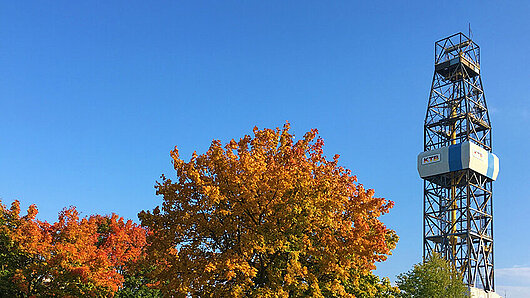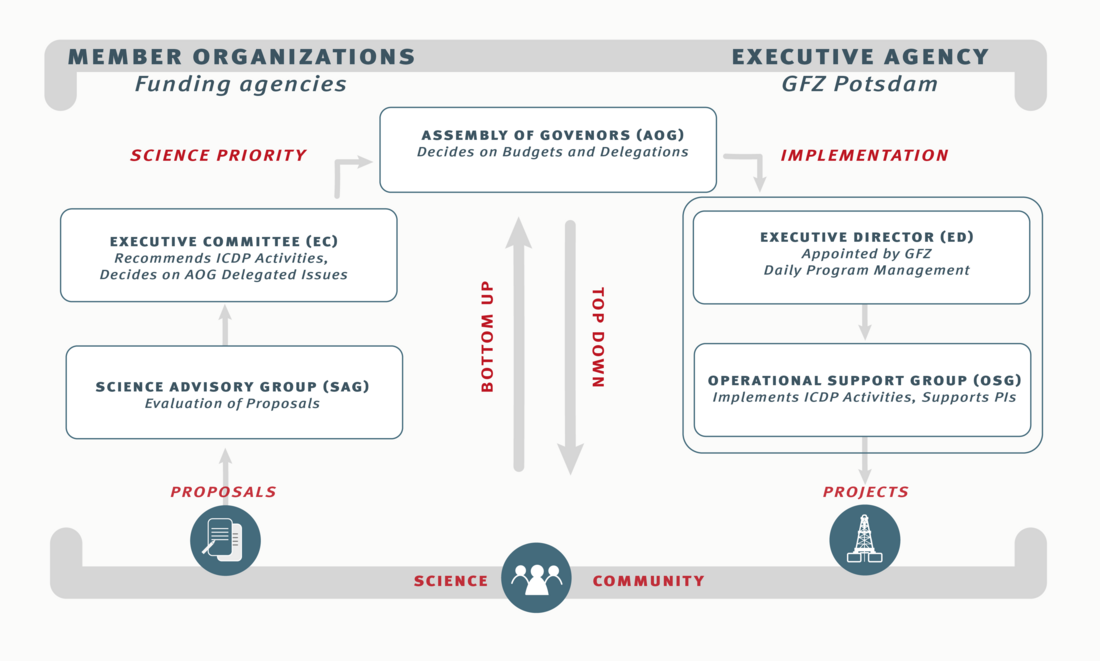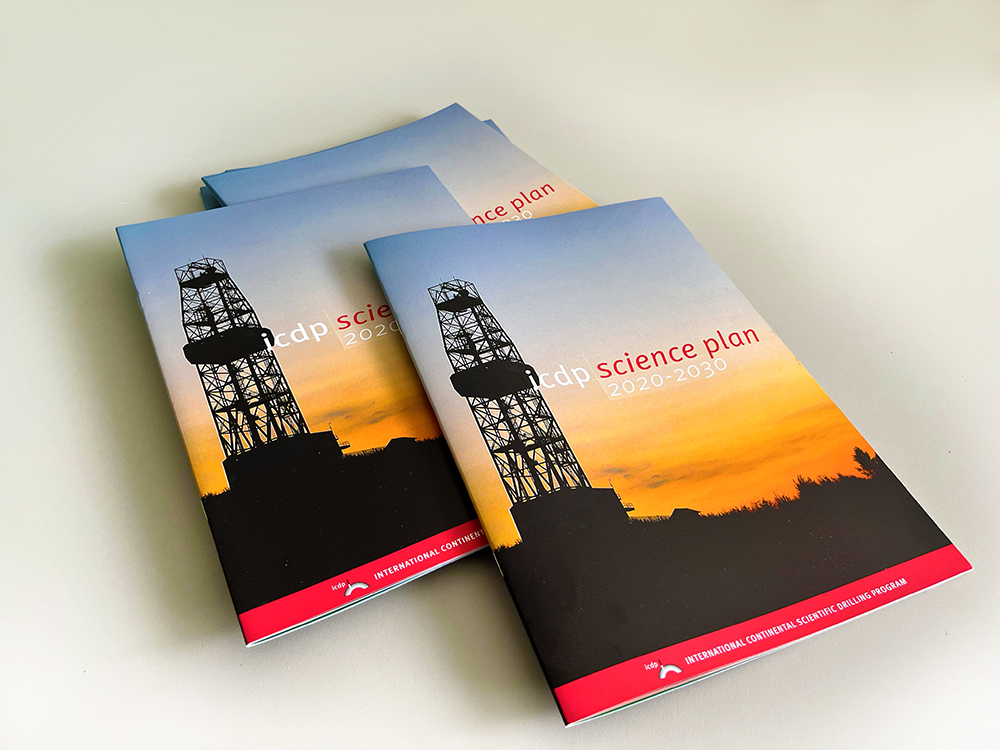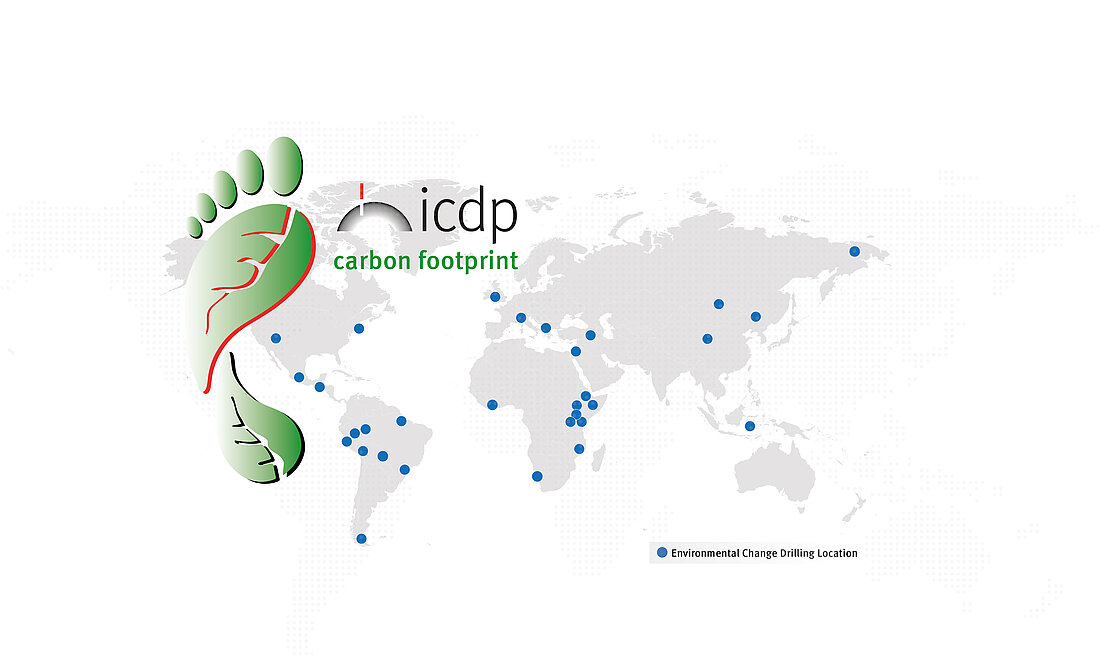About icdp
...supporting modern Earth science
The International Continental Scientific Drilling Program (ICDP) is an unique international program that has played a critical role over the past two decades, uncovering geological secrets from beneath our continents through targeted scientific drilling. As a non-profit organization for Earth system research, it has enabled first-class science to be pursued, numerous targets to be probed and hypotheses to be tested, with resulting in fundamental discoveries about our ‘System Earth’. Networking with other science programs has been strengthened ever since, and bridges with the private and government sector built. Discover more details in our Science Plan, our road map for the next decade.
Financial & Operational Support

Financial Support
ICDP has established a unique strategy for funding science with high societal relevance by funding workshops and co-funding drilling operations at different scales and on all continents. Technological innovations can be developed with industrial partners to fit individual project requirements.

Operational Support
Drilling, including retrieving samples and other data, is costly, and several factors need to be carefully considered. For any project, there is a risk of not achieving the anticipated goals and spending a lot of resources without significant results. To avoid such pitfalls, scientists can seek operational support and advice on technical and logistical matters, combined with an unique training program to provide scientists with skills on project and data management, as well as running tools for core analysis.
ICDP Science Plan
our directory for the next decade
The ICDP Science Plan 2020-2030 focuses on the most important issues that ICDP aims to investigate over the next decade. The key questions address fundamental science and link to wider societal challenges encompassed in the United Nations Sustainable Development Goals (SDGs). In particular, to underpin the SDGs that are related to clean water and sanitation, affordable and clean energy, sustainable cities and communities, and climate action.
4 grand challenges set the frame ...
Sustainability
a key issue in ICDP
Societal sustainability
ICDP funded actions always address educational potential, diversity, and gender balance. For drilling projects, it is implemental that local know how and workforce is included. In addition, outreach with focus on local communities is a core of field operations.
Economic sustainability
ICDP projects include as much as possible local contractors and service companies to facilitate local businesses. ICDP owns no drilling rig that is shipped around the globe to serve on different projects. However, well transportable tools and instruments acquired for ICDP projects are handed over to subsequent projects.
Environmental sustainability
ICDP invests about 40% of its budget in drilling projects studying past climate and environmental change. Accordingly, ICDPs greenhouse gas emissions are a major concern of the program. In order to restrict emission to a minimum, ICDPs Assembly of Governors has issued a carbon emission statement as a guideline for the program and its funded projects, and for proposals to ICDP.
Program History
ICDP Conference 25+
The ICDP 25+ Conference ‘ICDP in the Second Quarter of its First Century’ was held the German Research Center for Geosciences in Potsdam, Germany on July 21-23, 2023. The meeting was attended by 139 scientists from 23 countries, discussing the ICDP Science Plan research themes Geodynamics, Geohazards, Georesources, Environmental Change and various cross-topic sessions, included Co-mingled Funding, Operational Support, Land-to-Sea initiative, Outreach and Early Career Researcher Support.
Science Plan 2020-2030
The new Science Plan sets the framework for scientists and stakeholders for the next decade. Our continents stretch back Billion Years of Earth Evolution and through drilling we can do science on the societal relevant topics of Geodynamic Processes, Geohazards, Georesources, and Environmental Change.
Supporting Continental Scientific Drilling - ICDP's 20th Anniversary
In October 2016, we celebrated our 20th anniversary with a conference held in Potsdam where we discussed the way forward in geosciences, and how national funding agencies could strengthen scientific drilling in the future, as well as how the Operational Support Group, an important element of ICDP since the beginning of the program, should be involved in upcoming projects. Approximately 100 people were invited to partake, to share their views from within and from without.
A roadmap for operational support describing OSG's way for 2017-2022 has been published.
Charter
The Charter is ICDP's rules of operation, encouraging scientific investigation. A code of conduct is part of this Charter and should be adherred to.
Conference 'Imaging the Past to Imagine our Future'
The Science Conference was held at the GFZ in Potsdam in 2013. The White Paper ‘Unravelling the workings of planet Earth’ layed out the major scientific challenges for the next 5 years.
Science Conference
An international conference, held in Potsdam, where a refined science strategy for the future of the program was developed.
The outcome was a book, published by Springer: Continental Scientific Drilling, A Decade of Progress, and Challenges for the Future.
Founding of ICDP
The ICDP officially started on February 26, 1996 when the Memorandum of Understanding was ratified by representatives of the US National Science Foundation, the Chinese Ministry of Geology and Mineral Resources and the German Federal Ministry for Education, Science, Research and Technology/ GeoForschungsZentrum Potsdam (GFZ) at the German Embassy in Tokyo. The goals of the newly founded program were published in the ICDP Prosepctus.
Potsdam Conference
The Potsdam Conference was held in Potsdam at the newly established GeoForschungsZentrum (GFZ) in 1993 with 250 experts from 28 countries. It was held to examine the scientific justification and management needs for a multilateral international program. The results have been compiled in a Scientific Rationale for Establishment of an International Program of Continental Scientific Drilling.
KTB - the forerunner
Because of the highly successful German Continental Deep Drilling Program KTB, Germany was asked to take a leading role and to organize an international meeting to examine the scientific justification and management needs for a multilateral international scientific drilling program.



